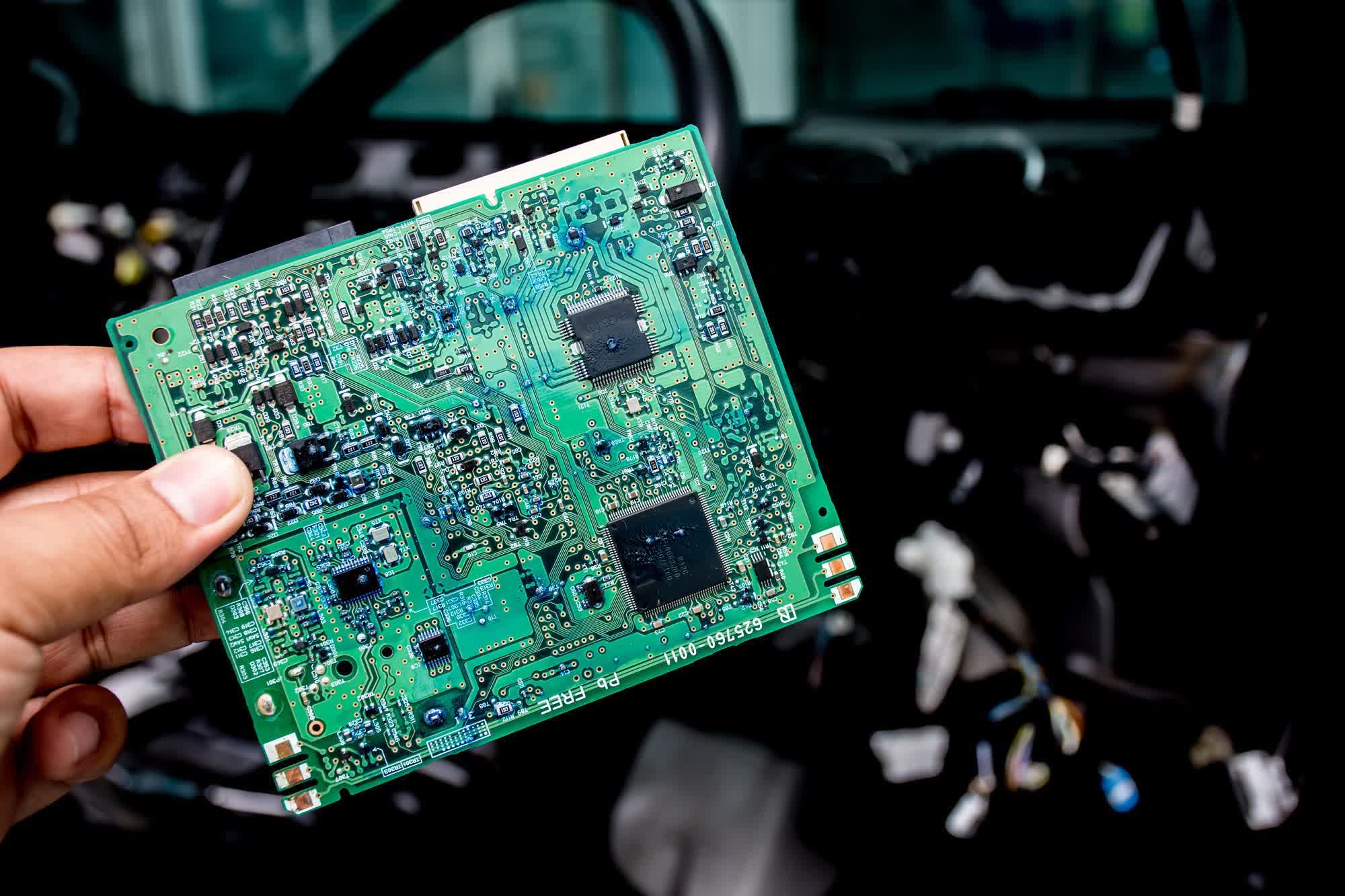Automakers are scaling back vehicle production as chip shortages bite
In brief: I of the many furnishings of the pandemic has been a chip shortage leaving consumers fighting over the few new consoles, graphics cards, and CPUs that arrive on the market. It's a problem that extends across home electronics and PCs—the automotive industry has been hit hardest of all.
Ford is one of several automakers that has been forced to slow production of its vehicles due to the global semiconductor flake shortage—manufacture of its popular F-150 pickup trucks is being cutting dorsum at plants in Michigan and Missouri.
Ford also stopped all production in Kentucky last December, and this month issued a calendar month-long interruption at a High german manufacturing plant, notes Ars Technica.
Other companies have faced the same situation: GM, Audi, Honda, VW, Subaru, Toyota, Mazda, Nissan, and Stellantis (formed from the Fiat Chrysler/Peugeot merger) have all reduced or say they may reduce their output.

The pandemic is to blame for the vehicle industry'due south state, though not how you might imagine. The starting time lockdowns saw machine sales plummet concluding summer—by over 97 percent in the United kingdom—leading to the temporary closure of vehicle manufacturing plants and showrooms. In response, chipmakers slowed down production of semiconductors for vehicles.
With many locations' Covid-19 restrictions easing recently, demand for vehicles has rebounded stronger than expected. Machine companies are now trying to ramp up production, but the chipmakers are busy fulfilling orders from other industries.
Semiconductor shortages are existence felt far and wide. In its contempo earnings reports, Sony warned that the situation means information technology is struggling to increase product of the PS5.
Image credit: Jenson, snapper8S8
Source: https://www.techspot.com/news/88536-automakers-scaling-back-vehicle-production-chip-shortages-bite.html
Posted by: baumfivemplarity69.blogspot.com


0 Response to "Automakers are scaling back vehicle production as chip shortages bite"
Post a Comment